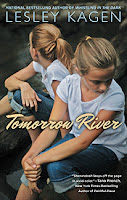I just finished the last chapter in my story of Maud Hart Lovelace. After a year of reading about Betsy, Tacy, Tib, Emily, and the rest of the Deep Valley crew, I finished Lovelace's collection of works by reading Harper Perennial's compilation edition of
Carney's House Party and
Winona's Pony Cart.
In
Carney's House Party, it's the summer of 1911 and Carney is hosting a month-long house party with members of the old Crowd and Isobel, her Vassar (and Eastern!) roommate.
Winona's Pony Cart focuses on Winona Root's eighth birthday party, when all she wants for her birthday is a pony to impress her friends Betsy, Tacy, and Tib.
These were a little odd to read, to be honest. They kind of felt like the outliers of Maud's repertoire. After finishing the Betsy-Tacy series with college and weddings, then reading
Emily of Deep Valley which features well-known characters in only the briefest sense,
Carney's House Party took me back to the Crowd's college days, which seems to be somewhere in time before
Betsy and the Great World. I felt like I was jumping back in time to something I'd already experienced. Then,
Winona's Pony Cart hops even further back to the elementary school days of the future members of the Crowd. Yes, these all work as independent stories, but after getting to know the characters so well after so many books, it was just strange to segway into the past!
This is not in any way really a complaint. Of course I still enjoyed the stories. The thing I liked about them was that they focused on characters we
know from the Betsy-Tacy stories but don't really know
that well. We get to see everything that's been going on in Deep Valley from a new perspective.
Carney, I liked a lot. I felt that she, like Emily (from
Emily of Deep Valley), is a lot more down to earth than Betsy, which I appreciate. Betsy's self-indulgence always annoyed me a bit. I cringed at the way she acted sometimes, like she was always just so amused with herself. I think I'm just too modest for Betsy and couldn't relate as much. I especially liked reading Carney's story with the return of her high school sweetheart Larry Humphreys, as they discovered if their relationship is still everything they thought it was.
Despite a whole book about Winona, I still don't feel like I really knew her. In
Winona's Pony Cart, she's kind of just a brat who cries til she gets what she wants, an impression that was already given about her back in the early Betsy-Tacy books. She had some redeeming qualities as an eight-year-old, like inviting all the kids to her party, but she's still just a little spoiled.
Winona's Pony Cart is a quick story focusing on one event, definitely more juvenile than the other Lovelace stand-alones. It reminded me of a story my sister wrote back in high school for me when I was little (and that she doesn't remember writing!) called Andy Kitty's Birthday Party about our cat Andy who invited all his animal friends over to our house for his birthday. It's that kind of simple.
So here concludes my trip through the works of Maud Hart Lovelace. The exciting part of reading every book was reading the historical followup at the end and looking at all the pictures of the real people on which these characters were based. I liked how the characters overlapped, and we got to peek at them from different angles. But now that these are done, I need another children's historical series to read!










